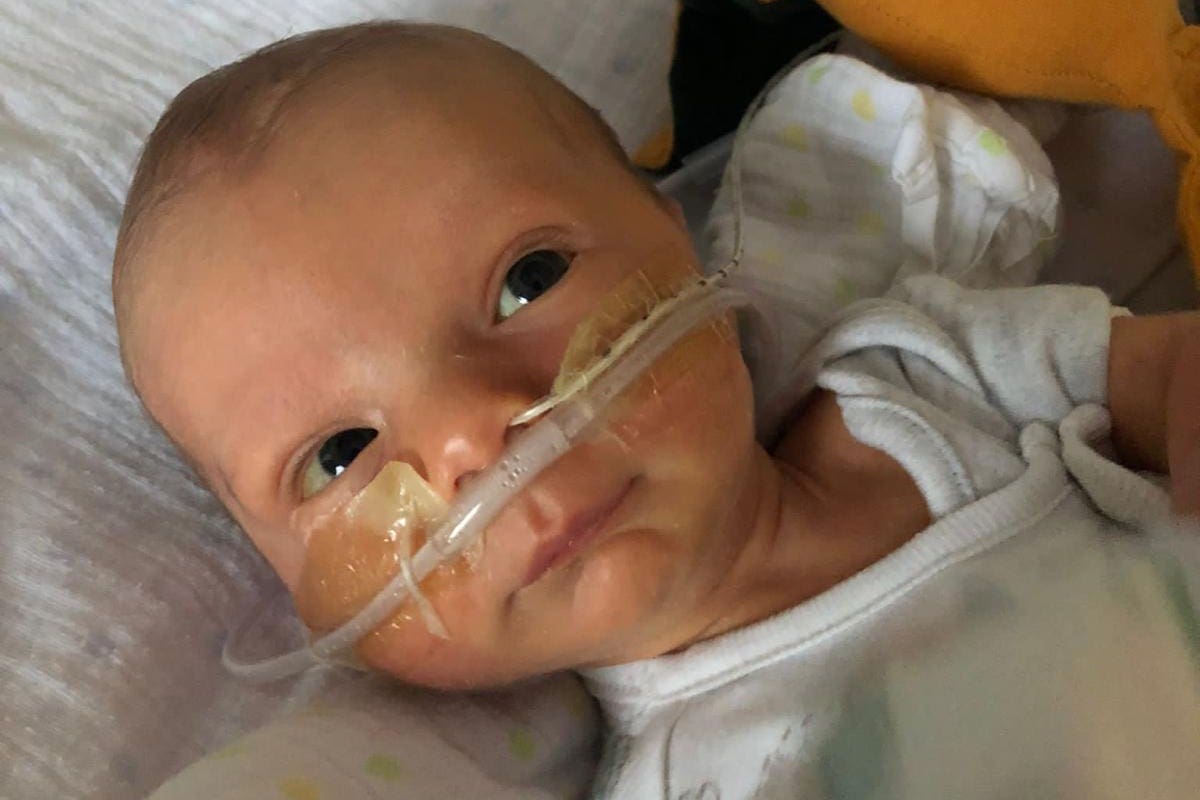Neglect contributed to death of 14-day-old baby boy, coroner says
Orlando Davis suffered an irreversible brain injury after his mother developed a rare condition in labour that went unrecognised.

Your support helps us to tell the story
From reproductive rights to climate change to Big Tech, The Independent is on the ground when the story is developing. Whether it's investigating the financials of Elon Musk's pro-Trump PAC or producing our latest documentary, 'The A Word', which shines a light on the American women fighting for reproductive rights, we know how important it is to parse out the facts from the messaging.
At such a critical moment in US history, we need reporters on the ground. Your donation allows us to keep sending journalists to speak to both sides of the story.
The Independent is trusted by Americans across the entire political spectrum. And unlike many other quality news outlets, we choose not to lock Americans out of our reporting and analysis with paywalls. We believe quality journalism should be available to everyone, paid for by those who can afford it.
Your support makes all the difference.Neglect contributed to the death of a 14-day-old baby boy where a mother’s rare condition in labour went unrecognised, a coroner has ruled.
Orlando Davis was born at Worthing Hospital, part of University Hospitals Sussex NHS Foundation Trust, on September 10 2021, but died of a fatal brain injury after just two weeks.
An inquest in Chichester heard how his mother Robyn Davis “did not feel safe” during labour and claimed midwives failed to act when she tried to raise fears that “something was wrong”.
Coroner Penelope Schofield said that Mrs Davis suffered hyponatraemia which went unrecognised both during the planned home birth and when she was transferred to hospital.
The coroner said: “Failure to recognise this condition was fundamental.
“I do find a lack of inquiry or investigation into what Robyn was saying.”
Mrs Davis had opted for a home birth following the knowledge it was a low-risk pregnancy, but the 28-year-old said she felt she had not been listened to by the midwives when she raised concerns about her fluid intake and the position of the baby.
The court had heard as complications arose during the labour, Mrs Davis was transferred to hospital as she began to suffer seizures.
Recording a narrative conclusion at the inquest, coroner Penelope Schofield, said: “On 9 September 2021, Robyn Davis developed hyponatraemia during her labour while having a home birth.
“Robyn’s condition went completely unrecognised during the period of her labour and, therefore, did not receive the care and attention her and her son clinically required.
“There was a lack of understanding of this rare medical condition by midwives and clinicians and as such there were lost opportunities to treat Robyn both at home and or during her subsequent submission to Worthing hospital.”
The coroner added the failure to recognise the condition resulted in Mrs Davis suffering a number of seizures, which restricted oxygen to Orlando before his birth and resulted in irreversible brain injury.
“Orlando’s death was contributed to by neglect,” the coroner said.
The coroner’s findings come after seven days of proceedings looking into Orlando’s death.
The inquest heard how Mrs Davis was placed in a coma for three days following her seizures, and it was not until she was transferred to see her son the following day that she found out how seriously ill he was.
Mrs Davis had told the inquest: “I can’t explain the sadness, frustration, anger and complete heartbreak I felt and still feel towards the trust for not keeping us safe.
Mrs Davis continued: “The thing I cannot process is that I have lost my healthy, full-term son. I feel as if my son was taken from me in a circumstance that, in my personal and professional opinion, was completely preventable.”
Ms Schofield also said she considered a contributing factor to Orlando’s death that there is no guidance of managing hyponatraemia in pregnancy and labour.
“While I appreciate the condition of hyponatraemia is rare, mothers place their lives and those of their newborns in the hands of professionals,” she said.
“While the trust have given evidence learned from Orlando’s death, the risk of hyponatraemia does not seem to form part of training, there still remains an ignorance nationally among professionals.
“Orlando’s death is one death too many.”
Mrs Davis and her husband Jonny Davis, who have two other children, are suing the hospital in a separate case assisted by birth injury claims specialist Laura Cook, of CL Medilaw.
Chief nurse Maggie Davies, from the hospital trust, said: “We wish to offer our sincere condolences to Orlando’s family once more for the unimaginable heartache and distress caused by the loss of their baby boy.
“As the coroner noted in her findings, hyponatremia is an extremely rare condition which is little understood. We support her view that there is an urgent need for new national guidelines.
“This tragedy has deeply affected everyone involved in the family’s care, and led directly to us introducing new guidance and training within our maternity service.”